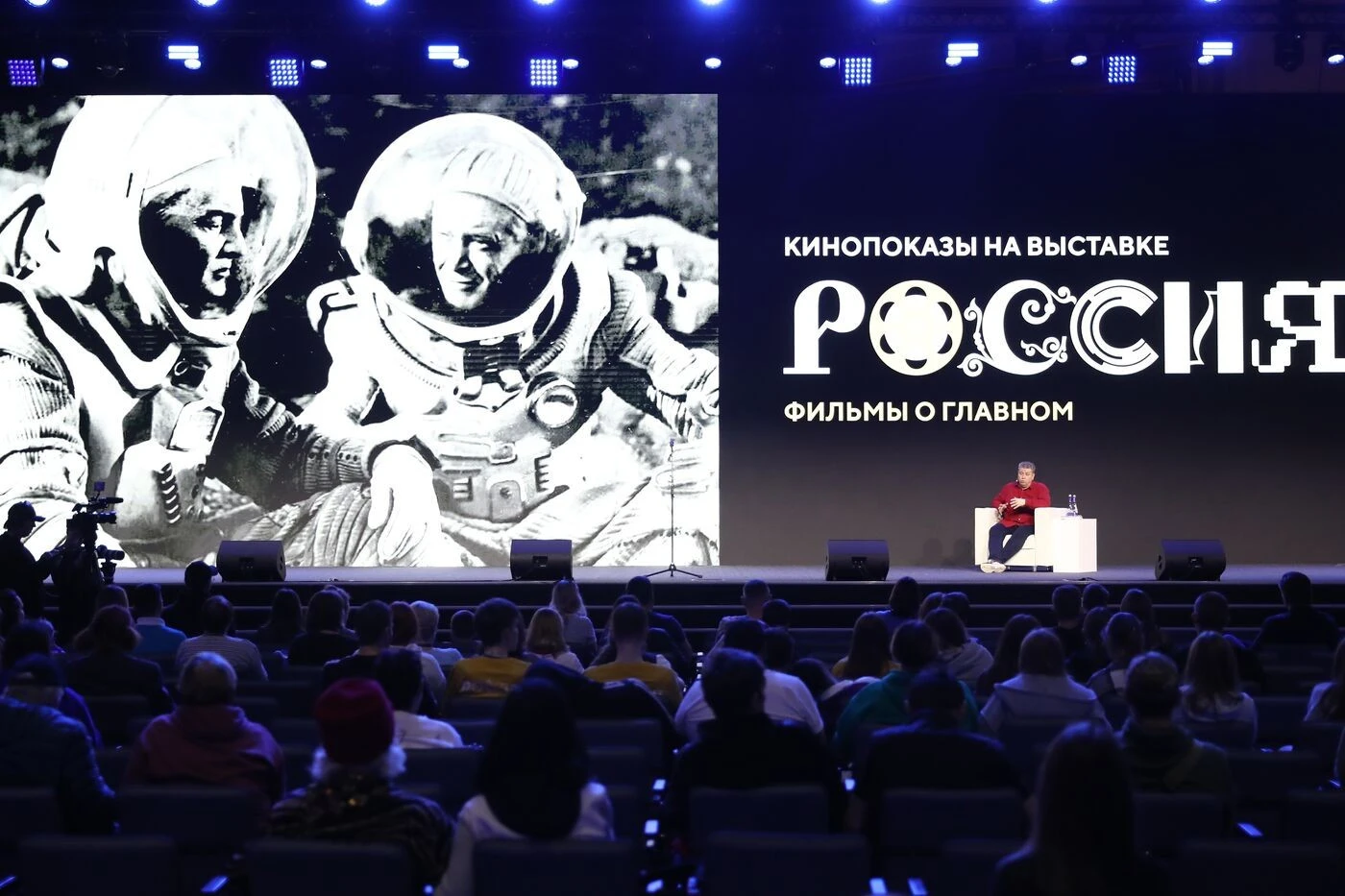SCIENCE FICTION: A VISION OF THE FUTURE SELECTION OF SOVIET FILMS ON SPACE EXPLORATION

Space exploration held a special place in the USSR. Let’s explore several significant Soviet science fiction films that not only captivated audiences but also posed crucial questions regarding humanity’s role in the immense universe, thereby shaping the future of the genre. “Planet of Storms,” a 1962 film directed by Pavel Klushantsev, follows the story of a space expedition to Venus. Heroes face off against carnivorous plants, dinosaur-esque beasts, and perilous primordial wilderness. The film is notable for its array of innovative special effects, which were groundbreaking. The screening rights for “Planet of Storms” have been secured by 28 countries, among them the United States, where George Lucas, the creator of “Star Wars,” viewed the film. He would later refer to Pavel Klushantsev as the “godfather” of his space saga. Lucas noted that he used many ideas from the Soviet film: the hovercraft, droids, and even the live actor dressed in a robot suit were “completely copied” from the Soviet movie. “Planet of Storms,” released in 1962 and directed by Pavel Klushantsev, tells the story of a space expedition to Venus. Heroes face off against carnivorous plants, dinosaur-esque beasts, and perilous primordial wilderness. The film is notable for its array of innovative special effects, which were groundbreaking. The screening rights for “Planet of Storms” have been secured by 28 countries, among them the United States, where George Lucas, the creator of “Star Wars,” viewed the film. He would later refer to Pavel Klushantsev as the “godfather” of his space saga. Lucas noted that he used many ideas from the Soviet film: the hovercraft, droids, and even the live actor dressed in a robot suit were “completely copied” from the Soviet movie. “Once, we gave the world a very important thing — space. We explored space not only in design bureaus and on orbital stations, but also on the pages of books and in movies. Our cinema has produced films that have become significant events, not only in domestic fiction but also on a global scale,” says Evgeny Kharitonov, head of literary projects at the Russian State Library for Youth, as well as a writer, literary and film historian, poet, and musician. The film “The Andromeda Nebula,” directed by Evgeny Sherstobitov, is an adaptation of the eponymous novel by Ivan Efremov and represents one of the earliest Soviet science fiction films. It was produced in a widescreen format and features the use of special effects. The 1967 film was a great success with audiences, became a classic of Soviet science fiction, and remains relevant today with its ideas and questions about the future of humanity. The film tells the story of the Earth spaceship “Tantra,” which finds itself in the gravitational field of one of the planets in the distant and little-studied system of the Iron Star. “Overall, the film appears to be a milestone in the evolution of our film industry. A challenging step into the unknown has been undertaken. The saying goes that the first pancake is always lumpy: in this image, many aspects may invite criticism, many may delight the viewer, and even more will provoke thought. Audiences, particularly the younger demographic, will embrace the film and eagerly anticipate its sequel. There will be no indifferent viewers, I’m sure,” commented the Soviet science fiction writer and popularizer of science, Sergey Snegov. The film “Moscow-Cassiopeia,” directed by Richard Viktorov, was released in 1973, followed by the second installment of the duology titled “Teens in the Universe” a year later. The film achieved remarkable success, securing several accolades, among them an award at the Trieste International Science Fiction Film Festival, a prize at the Moscow International Film Festival, and the Platero Award at the Gijon International Film Festival for Children and Youth. “Richard Victorov approached the genre of fiction with a professional and earnest demeanor, demonstrating a keen understanding of its nuances. He strove to establish a fully-fledged school representing this trend. The film “Moscow-Cassiopeia” achieved colossal success and attained cult status, both domestically and internationally. It won all imaginable and unimaginable awards. The picture is not at all outdated, even by today’s standards. It features technical innovations that even Steven Spielberg admired,” Evgeny Kharitonov said in his speech. Another work by Richard Viktorov is the two-part film “Through the Thorns to the Stars,” which explores space travel, a planetary-scale environmental disaster, aliens and robots, as well as themes of friendship and otherworldly love. The screenplay for the film, which explores the encounter between cosmonauts and extraterrestrial beings, was penned by the renowned Soviet science fiction author Kir Bulychev. Immediately after its release, the movie became a box office leader: in 1981, the space epic was seen by 20.5 million viewers. The film was screened in over 40 countries, and British director Ridley Scott visited Mosfilm on two occasions to study the techniques used in filming its scenes and constructing sets. “The film was released in the 1980s; however, it remains visually appealing and engaging to this day. This view is not exclusive to residents of Russia. We premiered the film in the United Arab Emirates on April 12 this year, and it became evident that even non-native speakers could appreciate the humor, despite the subtitles. Both children and adults watched the film with genuine interest,” stated Anna Viktorova, the daughter of the director. You can learn about modern research at the International Science Fiction Symposium "Inventing the Future". The event is to be held from November 4 to 6 and will be the inaugural occasion of the National Centre RUSSIA. The Symposium will become a unique platform for continuing the discussions initiated during the series of science fiction film screenings “Films about the Main Things” at the RUSSIA EXPO. At that time, viewers and experts gathered to watch and discuss the legendary science fiction films “Planet of Storms,” “Moscow - Cassiopeia,” and “Through the Thorns to the Stars.” The symposium also features a session titled “Inventing the Future,” which delves into groundbreaking research in astrophysics, robotics, artificial intelligence, and other advanced fields with the potential to significantly influence the course of our future.
